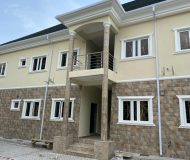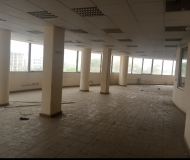
Effect of insecurity on Nigeria Real Estate
The ramifications of insecurity on Nigeria’s real estate sector are intricate and far-reaching.
- “Agents Shun Urban Centers Amid Nationwide Insecurity Surge”:
- Across various regions, notably in the northeast, northwest, north-central, and select southern states, escalating insecurity is casting a shadow over the real estate landscape.
- Over 3.3 million individuals, including 2.5 million internally displaced persons (IDPs) in northeastern Nigeria, grapple with displacement due to insecurity.
- Kidnappings, banditry, terrorism, and herder-related attacks are deterring private sector participation in housing initiatives, aggravating the housing crisis.
- Estate surveyors, agents, developers, and investors are exhibiting reluctance towards venturing into certain areas due to heightened risks of abduction and bandit activities.
- Numerous ongoing real estate ventures are experiencing suspension amidst fears of abductions, resulting in increased vacancy rates in affected regions.
2. “Insecurity’s Toll on Nigeria’s Housing Inventory”:
- Insecurity is leaving a trail of destruction, diminishing the housing stock and exacerbating the housing deficit.
- Additionally, it acts as a deterrent for prospective investments in the real estate sector, compounding the issue.
Read also: Top Tips for Renting: Understanding Month-to-Month Leases
3. “Evolving Factors Impacting Nigeria’s Residential Real Estate Sphere”:
- Challenges such as currency depreciation, restricted access to state-owned land for mass housing projects, escalating building material costs, high financing charges, and a burgeoning population aspiring for homeownership are contributing to the complexities.
- The scarcity of affordable housing options for low-income earners and an inhospitable climate for long-term investor prosperity further complicate matters.
Read also: Mastering Home Previews: Essential Tips for Real Estate Agents
4. “Insecurity Aggravating Real Estate Crisis, Reports HDAN”:
- Inadequate security measures in certain regions are exerting pressure on properties in ostensibly secure areas.
- The mass exodus from volatile regions is driving up property purchase or lease expenses in these presumed safer zones.
Read also: Ministry and EFCC Unite to Combat Housing Fraud
In summary, insecurity profoundly impacts Nigeria’s real estate sector, influencing housing accessibility, investment prospects, and overall stability. Effectively addressing these challenges necessitates concerted efforts from both public and private stakeholders.






